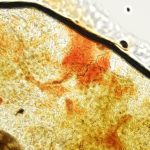Symptoms of poisoning in dogs can vary tremendously depending on the type of poison they have encountered. These signs can range from hypersalivation, to gum discoloration, collapse, accelerated heath rate, excessive drinking, and urination. In case of suspicious ingestion of potential toxic substances, it is of pivotal importance collect a complete clinical history of the patient and understand if this could have been in contact of harmful substances, ranging from drugs (from the owners?) to toxic food and plants. Some of these substances (e.g., metaldehyde contained in slug pellets, ethylene glycol) may present a sweet taste that make them particularly appetible. A separate category is represented by anticoagulant rodenticides that can be accidentally ingested by dogs and cats and may result in very severe coagulation disorders.
Battlab offers specific testing for numerous toxic substances, ranging from biological control agents, heavy metals, human drugs, biological and plant toxins, and rodenticides. Sample requirements may vary depending on the substance and include stomach content, heparin blood and/or urine; therefore, contacting the laboratory is always recommended in those cases to be sure the submitted sample is suitable for analysis.
Testing is based on liquid chromatography with mass spectrometric detection (LC-MS), which is considered being the gold standard technique. Liquid chromatography (LC) separates the sample components and then introduces them to the mass spectrometer (MS). The MS creates and detects charged ions. The LC/MS data may be used to provide information about the molecular weight, structure, identity, and quantity of specific sample components.

Francesco Cian
DVM, DipECVCP, FRCPath, MRCVS,
RCVS Specialist in Veterinary Clinical Pathology
Pathologist
Please feel free to contact us if you need any further information.



